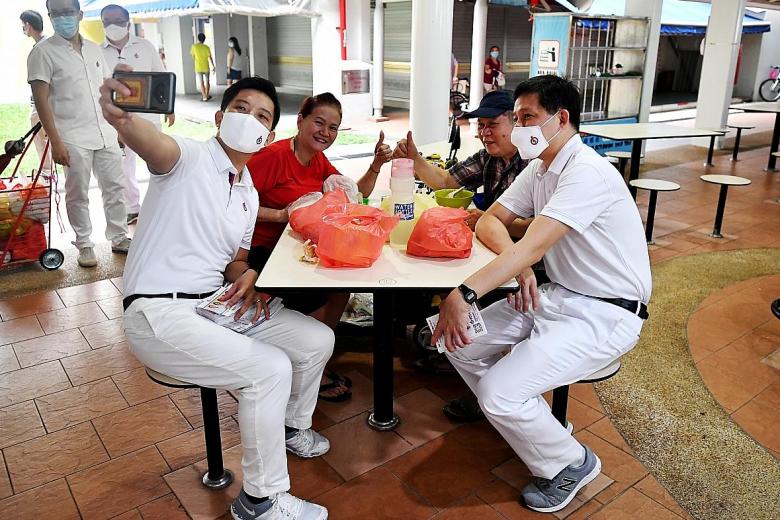- Joined
- Jun 11, 2017
- Messages
- 20,082
- Points
- 113

The People's Action Party (PAP) will never have a blank cheque to do as it wishes because it is accountable to Singaporeans, two ministers said yesterday.
The country's Non-Constituency MP (NCMP) scheme also guarantees that Parliament will have a diversity of views and opposing voices, regardless of whether opposition members are elected, they added.
Minister for Trade and Industry Chan Chun Sing and Minister in the Prime Minister's Office Indranee Rajah were responding to Workers' Party (WP) candidate Jamus Lim, who had called on Singaporeans to vote for the WP and deny the PAP "a blank cheque" during a televised debate on Wednesday.
Mr Chan said this is not a "correct characterisation" of what the General Election is about, as the PAP is accountable to the electorate and responsible for the people's welfare.
"I don't think there is anything such as a blank cheque as if the PAP can do anything without accountability," he said.
"Everything that we do, at every step of the way, we have to be responsible to Singaporeans, their welfare, their well-being and we have to be responsible for the long-term survival of the country."
Mr Chan was speaking on the sidelines of a walkabout at Pek Kio Market, where he was joined by his Tanjong Pagar GRC teammates, Ms Indranee and PAP new faces Alvin Tan and Eric Chua.
During the Wednesday debate, Associate Professor Lim, who is in the WP's Sengkang GRC team, said: "The PAP has argued that the election is really about giving them a mandate to bring the country out of this crisis and they need this mandate in order to do so.
"The truth is the PAP in all likelihood will have this mandate by the end of this election... what we are trying to deny the PAP isn't a mandate, what we are trying to deny them is a blank cheque."
In her rebuttal, Ms Indranee pointed to the NCMP scheme: "The PAP will never have a blank cheque, because no matter what happens, the Constitution guarantees at least 12 opposition seats."
She said NCMPs have equal voting rights as elected MPs, and can vote on parliamentary matters such as constitutional amendments, supply and money Bills and vote of confidence.
The NCMP scheme was introduced in 1984 to ensure a minimum number of opposition Members in Parliament. NCMP seats are offered to losing opposition candidates who get the highest percentage of votes.
In 2016, the Constitution was amended to give NCMPs expanded rights and to increase the number of opposition MPs from nine to 12.
These 12 seats can comprise any combination of elected MPs or NCMPs. If there are 12 or more elected opposition MPs, there will be no NCMP seats.
Mr Chan said the NCMP scheme has institutionalised diversity of views in Parliament.
"We designed it as such because we want to make sure any discussion about the future of the country and the policies that we are going to implement are done robustly," he said.
However, Progress Singapore Party (PSP) chief Tan Cheng Bock has hit out at the expanded NCMP scheme as a ploy to entice voters to not vote for the opposition.
He said he would decline an NCMP seat if he was offered one, but other party members could take it up if they wished.
Dr Tan was speaking to reporters during a walkabout yesterday with PSP candidate Kayla Low at a market in Yio Chu Kang SMC.
"For NCMPs, while they try and improve the scheme, I look at it as a ploy this round to entice you all to vote the PAP because they guarantee you that they (will) have 12 NCMPs.
"But I think, if you really want a proper representative in the House, vote for the person to go into the House so he has the base. That is very important. If you have no base, it is very difficult to function as an MP. You cannot just be like a virtual MP, you must be a proper MP," he said.
Dr Tan, who is leading the PSP's A-team to contest in West Coast GRC, said an elected MP is connected to the people and has the responsibility to voters who elected him.
"These are the people you really have to represent on the ground, that makes you a very different MP because you can feel the ground, you know the ground (and) the issues that are brought up. You can speak with strength," he said.
But Dr Tan added that he would leave it to his team members to decide if they want to enter Parliament through the NCMP scheme, in the event that they are offered seats.



